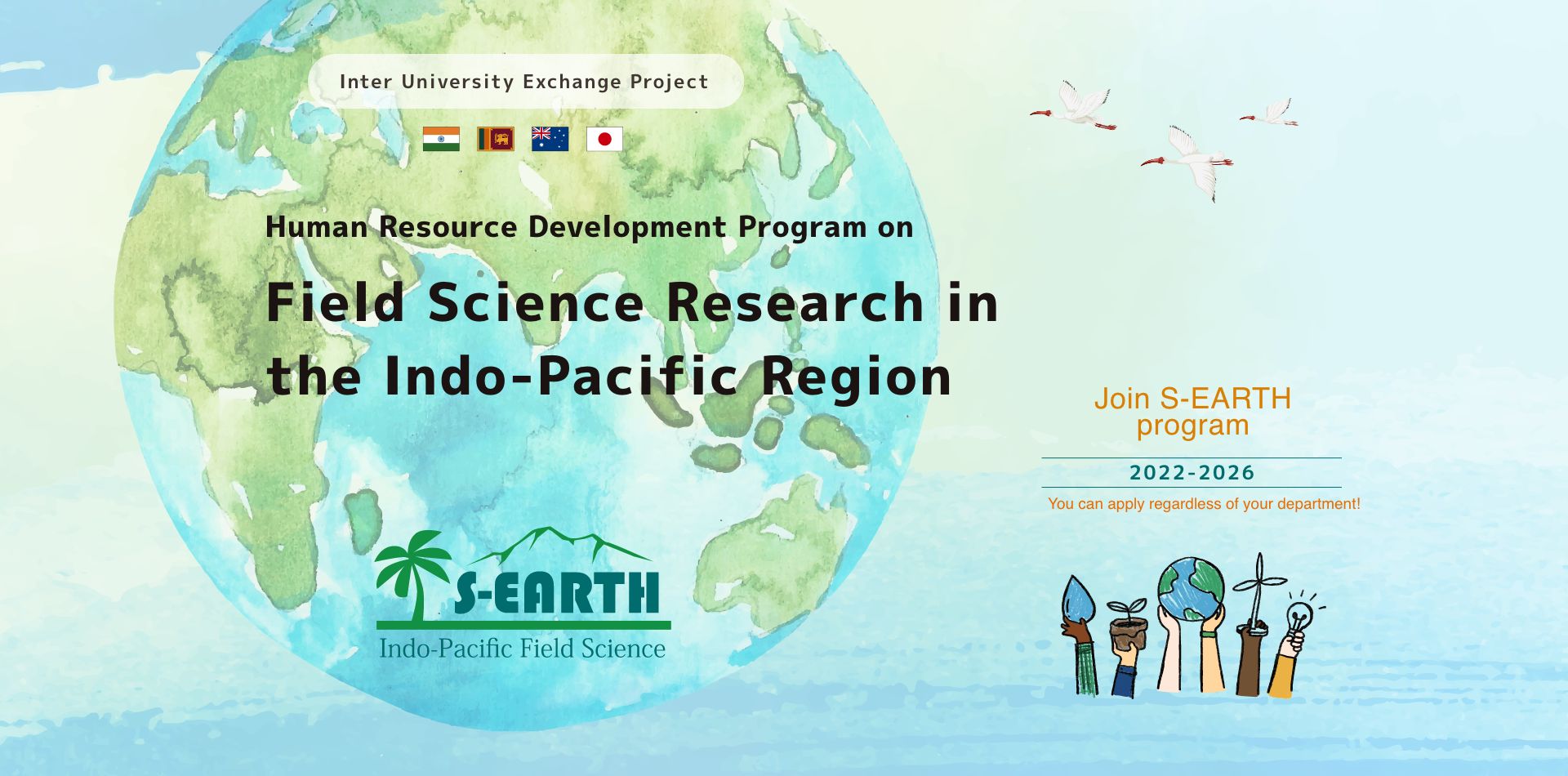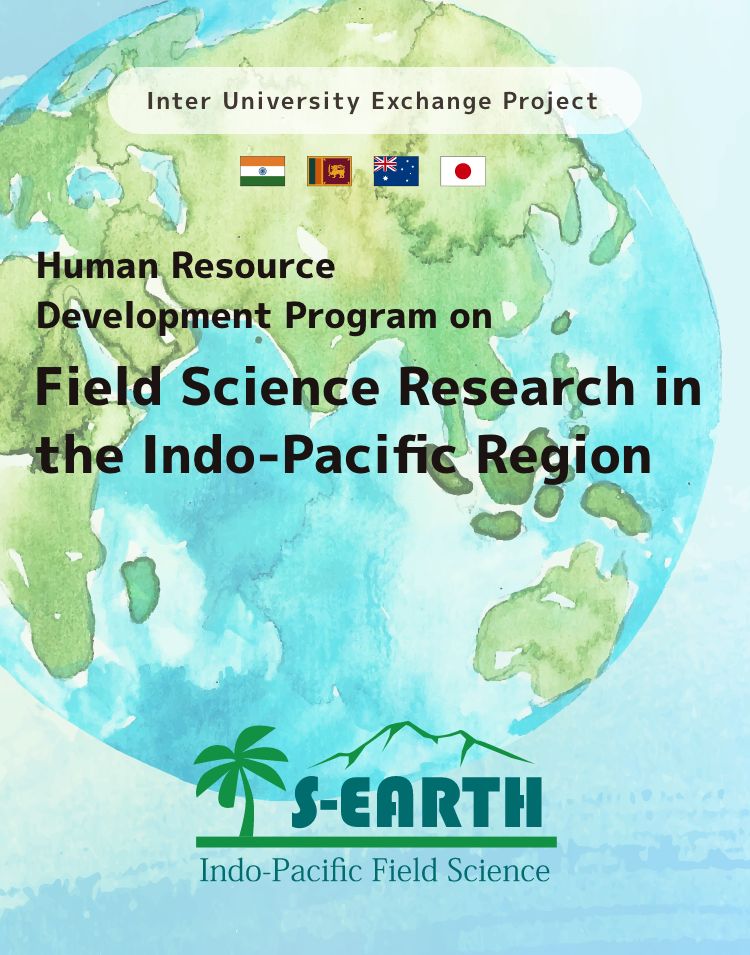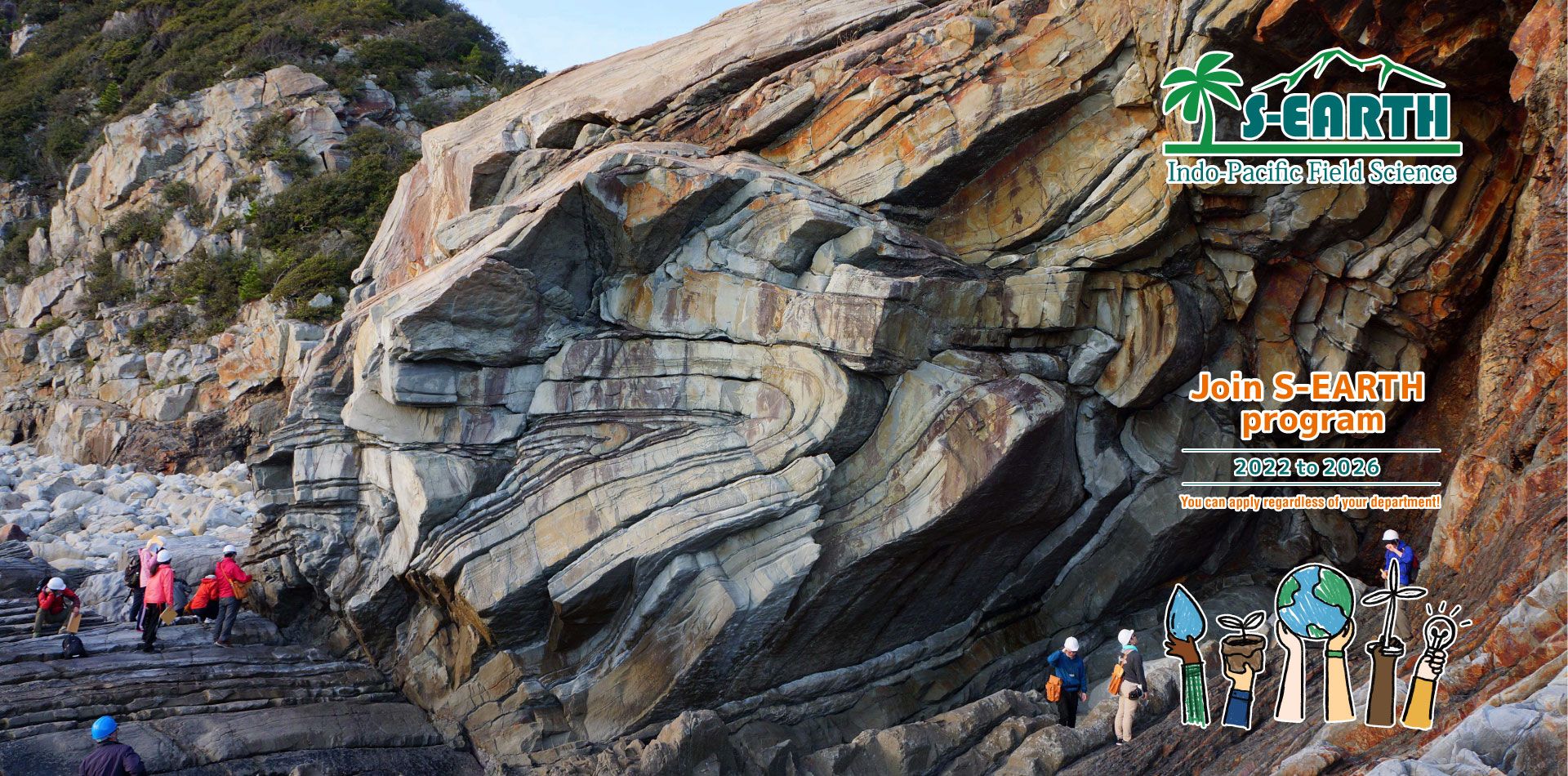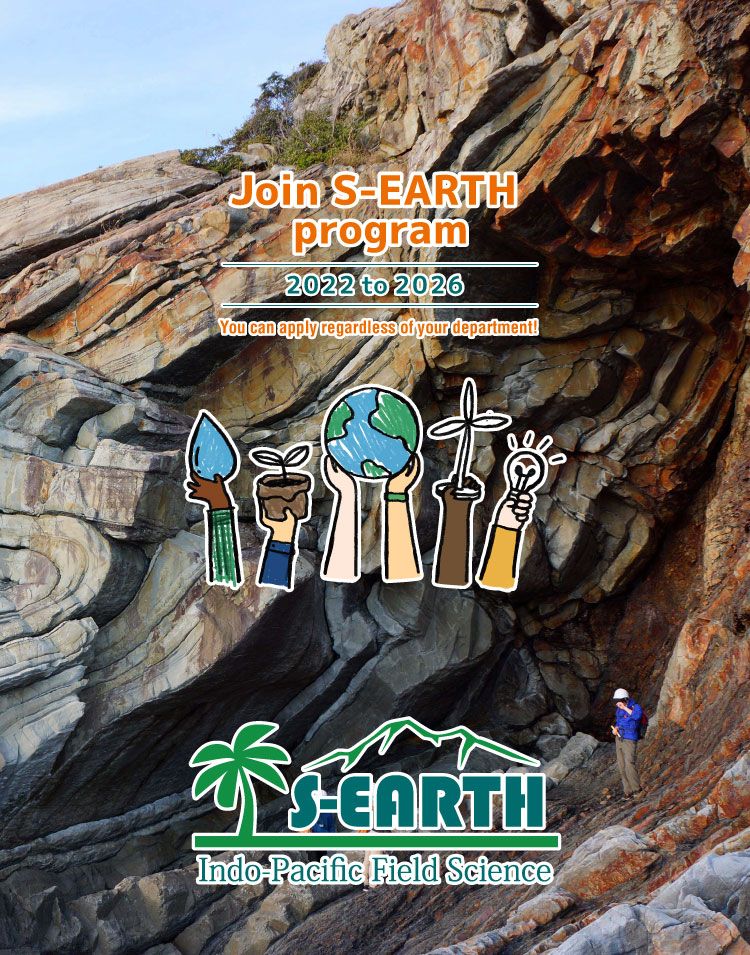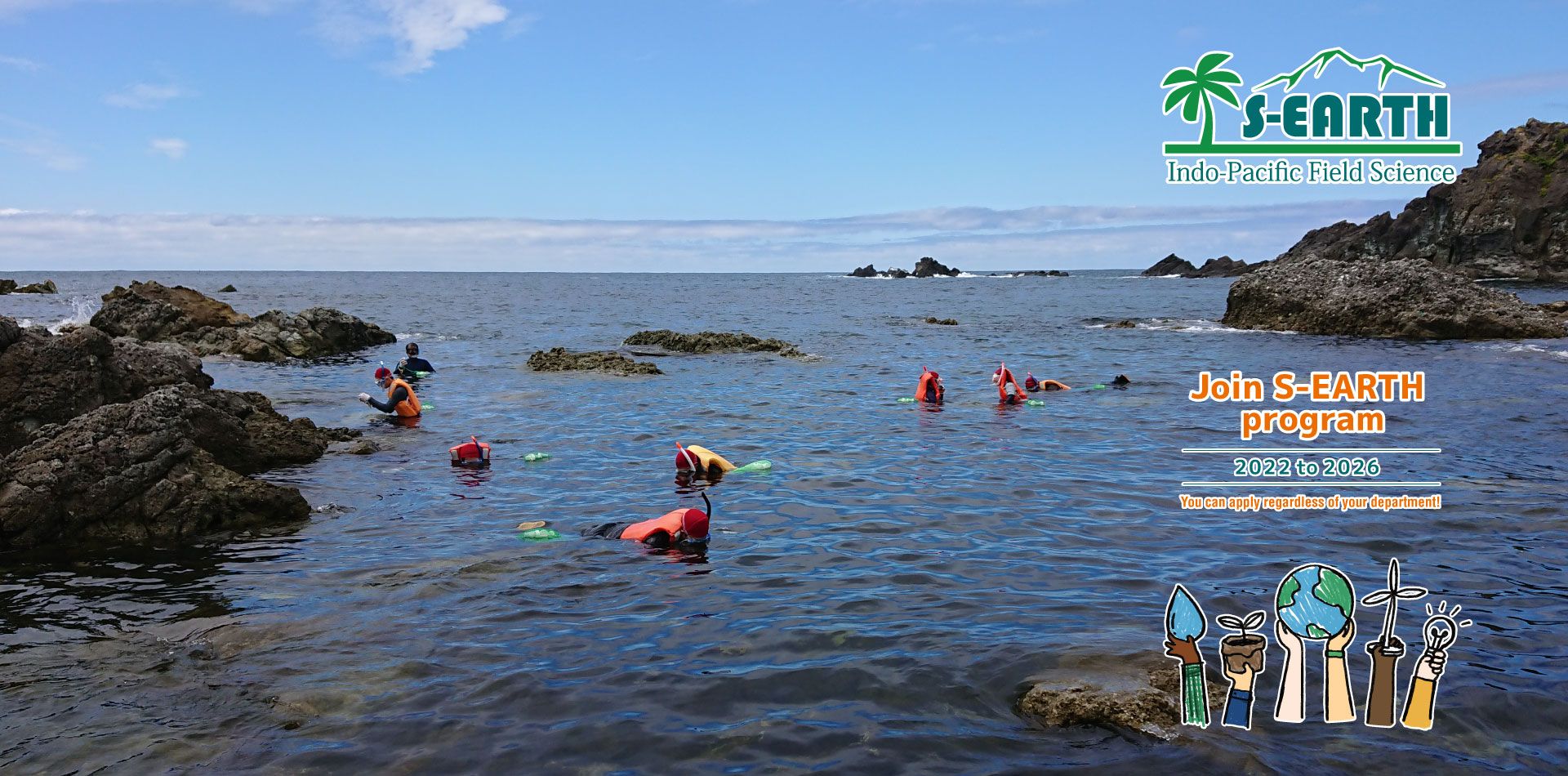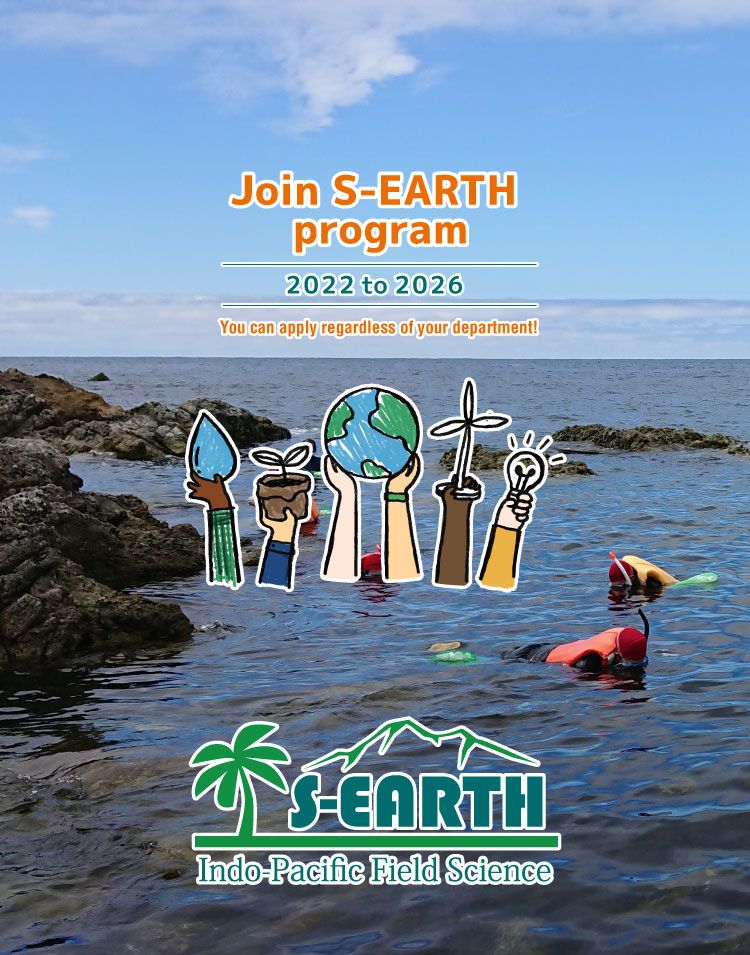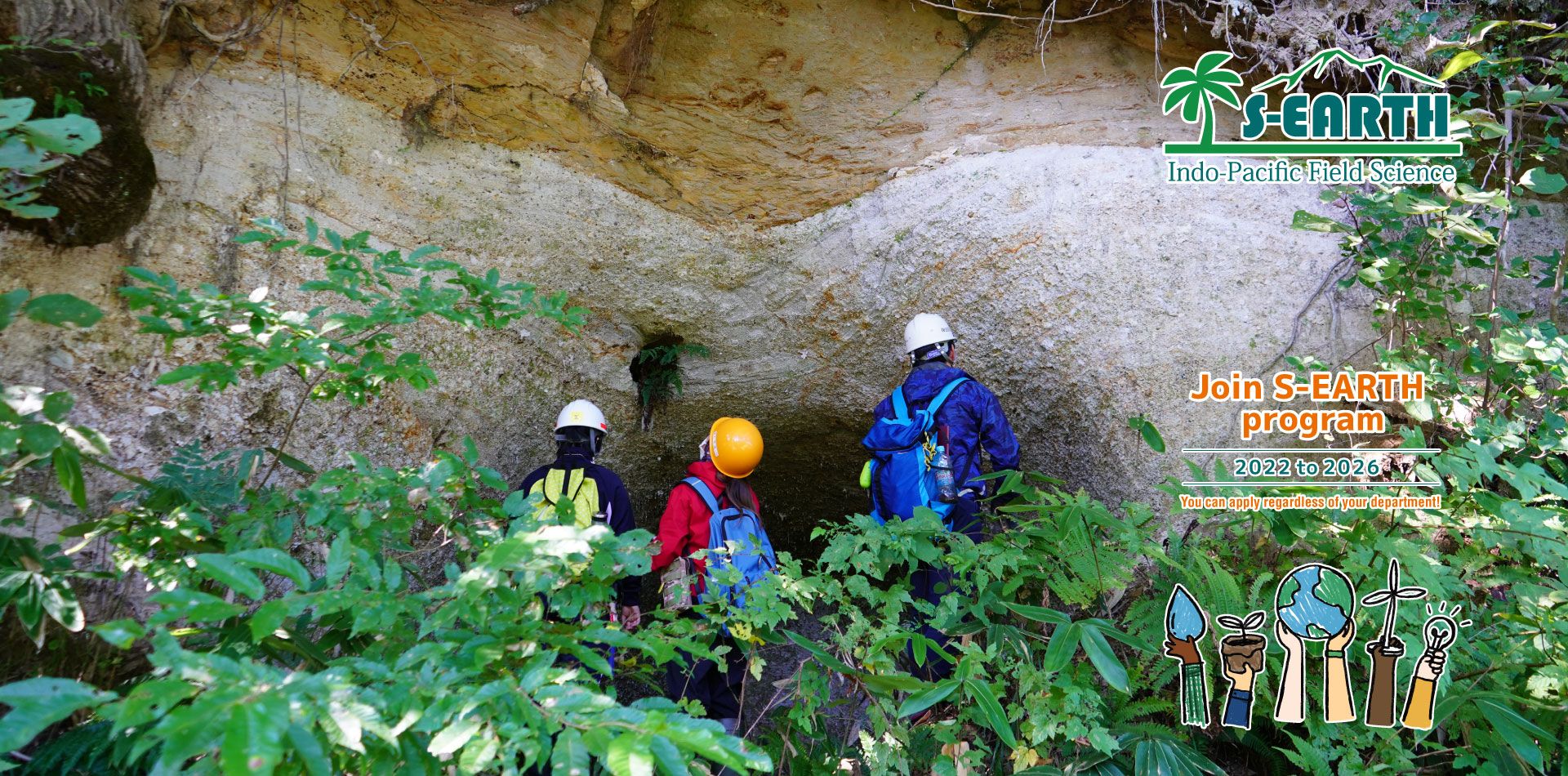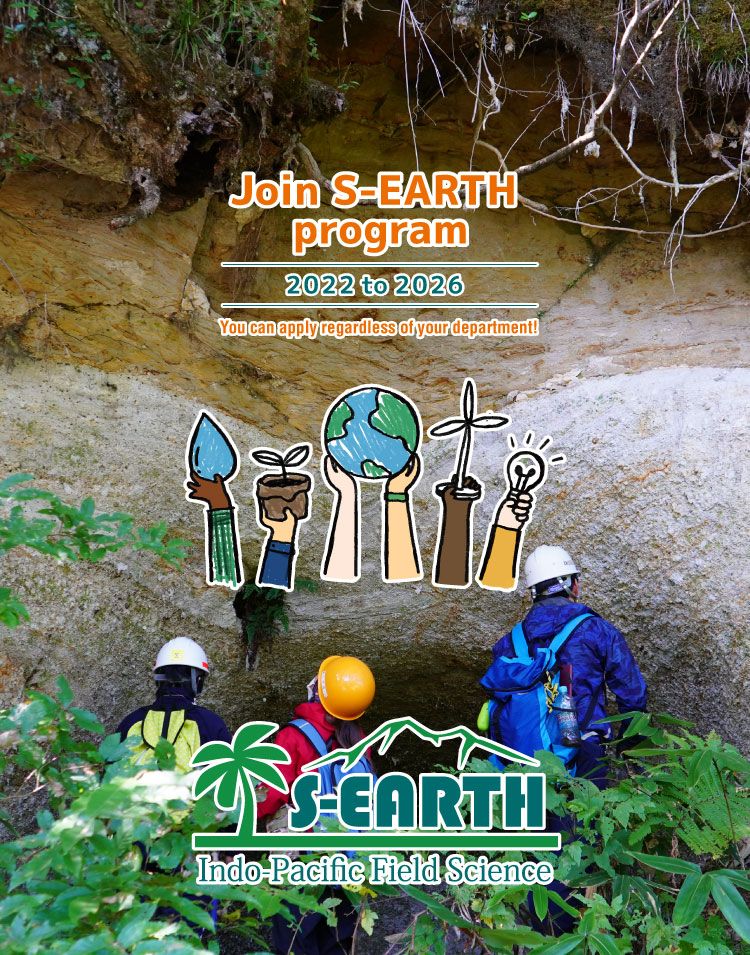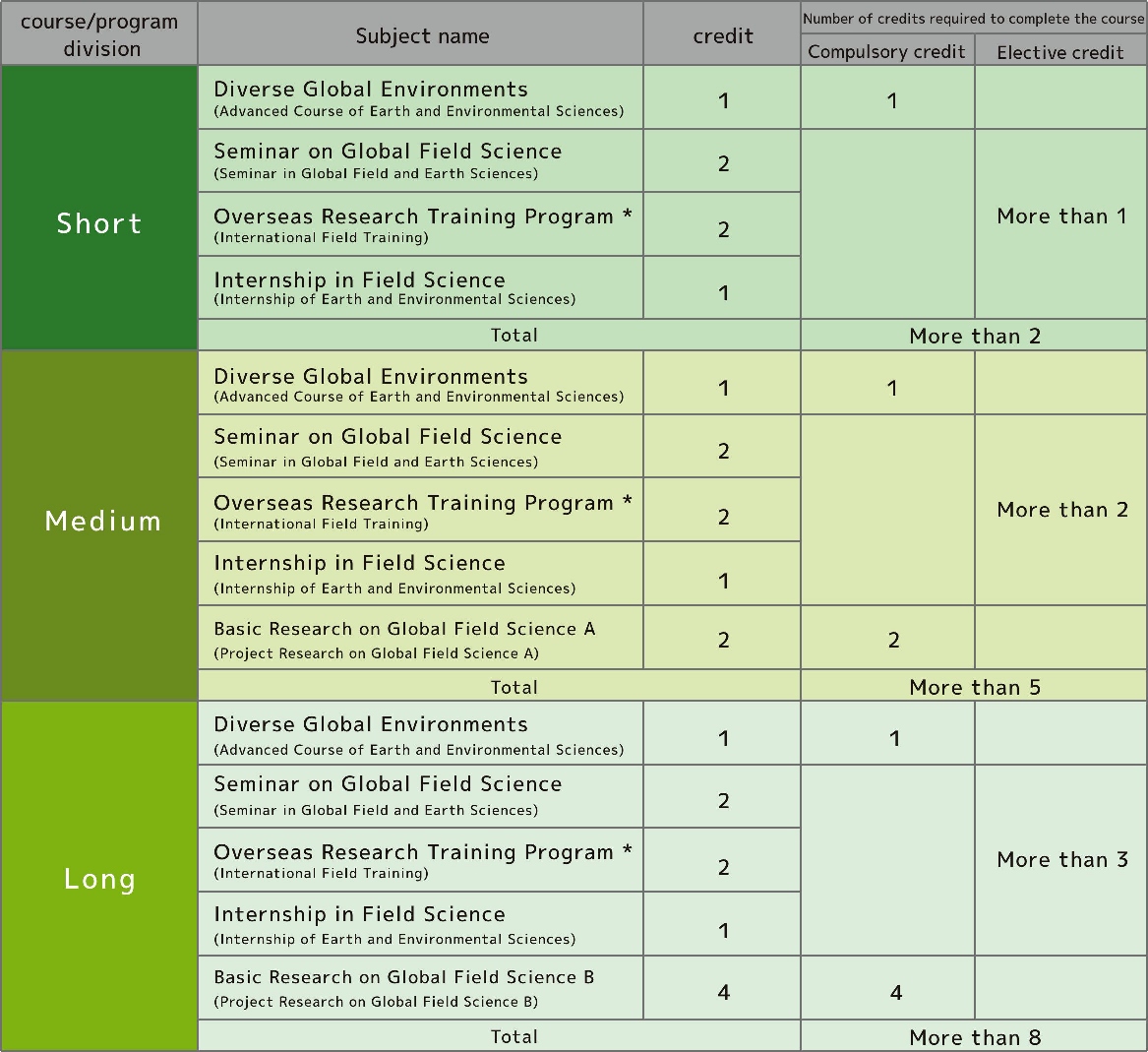Limited time program
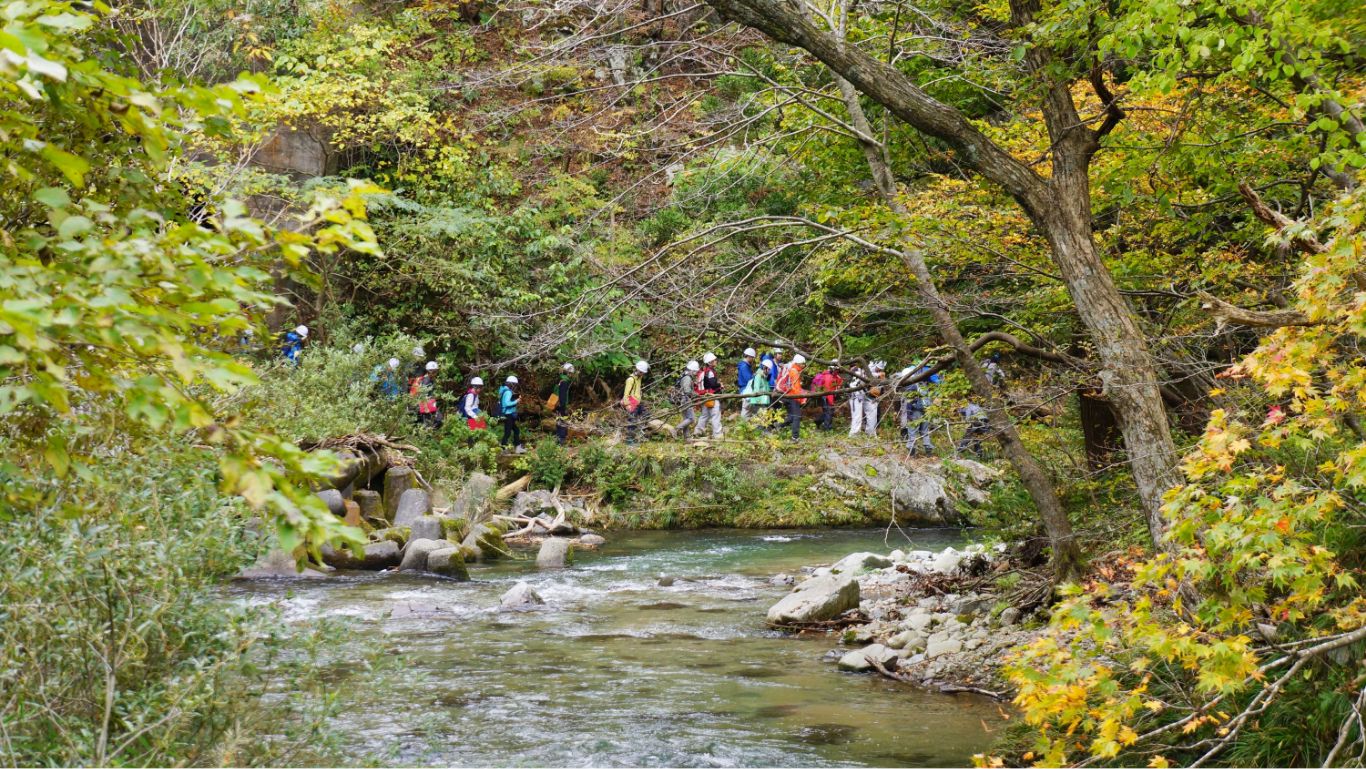
-
You can apply regardless of your department!
S-EARTH’s educational program is open to undergraduate and graduate students at Niigata University, regardless of their academic background in science or humanities. Eligible students may receive partial funding for airfare and local expenses related to overseas travel from 2023 -2026 (subject to specific application conditions). Please contact us directly for more information about this funding opportunity or to apply. We look forward to hearing from you!
-
Subjects and courses
Undergraduate and graduate students must take common courses as part of our educational program. The short-term program is awarded 2 credits, while medium- and long-term programs are awarded 5 credits and 8 credits, respectively. Upon successful completion of the course, students will receive a certificate as proof of their achievement. Additionally, students who complete medium- and long-term programs will be awarded an “open badge,” a digital certificate of learning history certified by the international standardization organization, IMS Global Learning Consortium. Our program is named as follows:
・Undergraduate students
— Training Course for Global Environment Field Planner・Graduate students
— Human Resource Development Program on Field Science ResearchContact us for more information about this exciting opportunity to gain valuable skills and knowledge!
DOWNLORD pdf file
Click here for subject names and the number of credits required to complete the course/program. -
Number of participants and schedule
We aim to enroll approximately 40 students in our online courses each year, and 20 to 30 students traveling abroad for field training. While we plan to send students to different countries annually, course credits will be awarded for only one of the countries visited. Contact us to learn more about our exciting opportunities for global education and training!
Schedule for 2023
-
-
Early to mid-July (about 14 days): Acceptance
(Collaborative study with students Niigata University) -
Mid-September to late September (10-12 days): Australia
-
Mid to late December (about 10 to 12 days): India
-
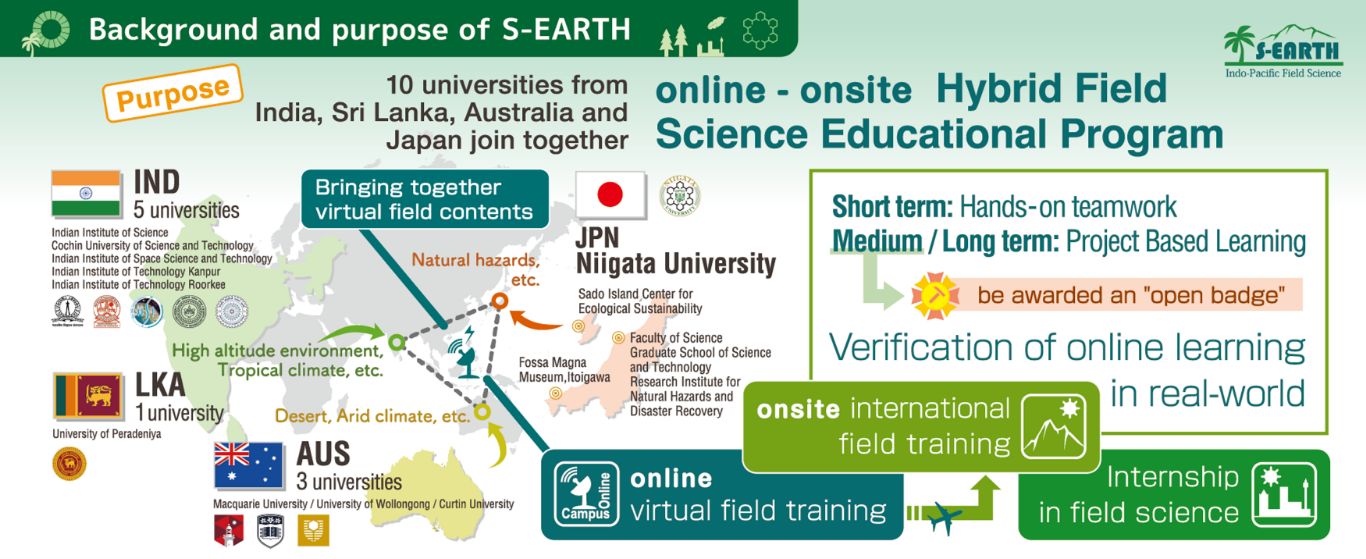

Zoom in


Zoom in
Introduction to University Partnerships
(India・Australia・Sri Lanka )
-
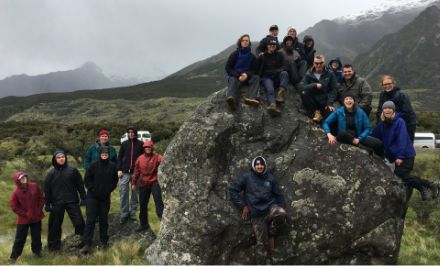 Move to university site(external)
Move to university site(external)
Australia
Macquarie University
-
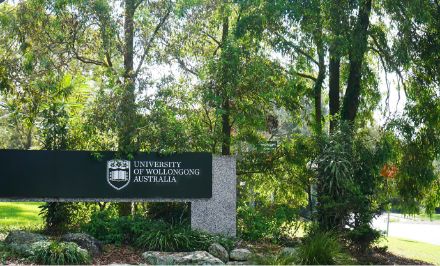 Move to university site(external)
Move to university site(external)
Australia
University of Wollongong
-
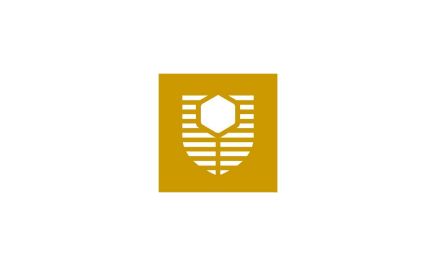 Move to university site(external)
Move to university site(external)
Australia
Curtin University
-
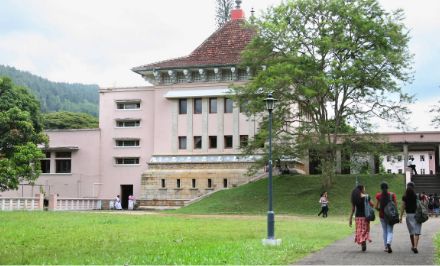 Move to university site(external)
Move to university site(external)
Sri Lanka
University of Peradeniya
-
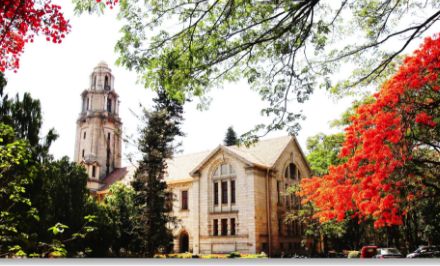 Move to university site(external)
Move to university site(external)
India
Indian Institute of Science
-
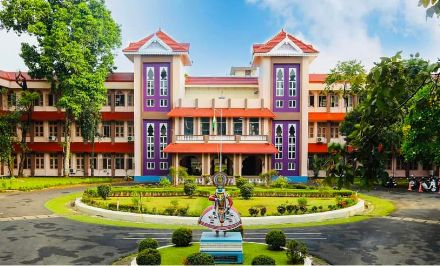 Move to university site(external)
Move to university site(external)
India
Cochin University of Science and Technology
-
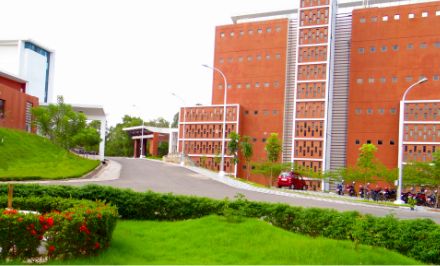 Move to university site(external)
Move to university site(external)
India
Indian Institute of Space Science and Technology
-
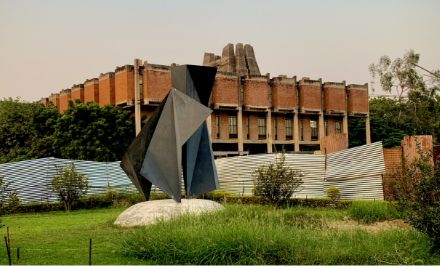 Move to university site(external)
Move to university site(external)
India
Indian Institute of Technology Kanpur
-
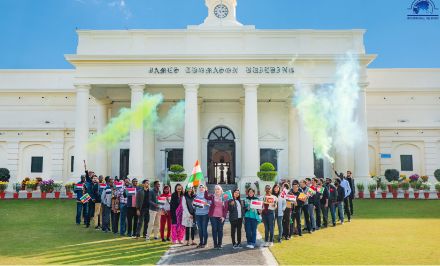 Move to university site(external)
Move to university site(external)
India
Indian Institute of Technology Roorkee

